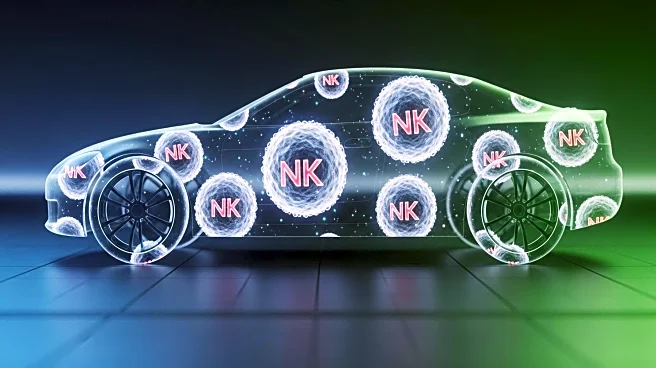What's Happening?
Recent research has demonstrated a promising approach to treating non-small cell lung cancer (NSCLC) by integrating humanized ROBO1 chimeric antigen receptor (CAR) into natural killer (NK) cells. This study focused on modifying NK cells to target the ROBO1 receptor, which is prevalent on tumor cells. By inserting the ROBO1 CAR sequence at the PD-1 locus, researchers enhanced the tumor-killing capabilities of NK cells, showing significant inhibitory effects on tumor growth in mouse models. The findings suggest that targeting ROBO1 with CAR-NK cells could offer a new therapeutic strategy for NSCLC, addressing a critical need in cancer treatment.
Why It's Important?
The integration of ROBO1 CAR into NK cells represents a significant advancement in cancer therapy, particularly for NSCLC, which remains a leading cause of cancer-related deaths. This approach could revolutionize treatment by providing a more effective and targeted method to combat tumor growth. The study's success in enhancing NK cell function and inhibiting tumor progression highlights the potential for CAR-NK therapies to improve patient outcomes and expand treatment options for solid tumors. This development may pave the way for further research and clinical trials, potentially transforming cancer treatment paradigms.
What's Next?
Following these promising results, further research and clinical trials are anticipated to validate the efficacy and safety of ROBO1 CAR-NK cell therapy in humans. Researchers will likely explore optimizing this approach and assessing its applicability to other types of cancer. Collaboration between scientific institutions and pharmaceutical companies could accelerate the development and commercialization of this therapy. Regulatory approval processes will be crucial in determining the timeline for potential clinical use, with ongoing studies needed to ensure comprehensive understanding and application of this innovative treatment.











